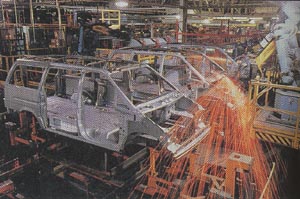Artificial Intelligence
Concepts
- Artificial Intelligence attempts to simulate human thought
processes and actions such as:
- Reasoning
- Learning from past actions
- Simulation of human senses (vision and touch)
- The goal of artificial intelligence is to help people be
more productive.
- Practical applications includes business, law, medicine,
etc.
- Two area of artificial intelligence are:
- Knowledge-based systems (expert systems)
- Robotics
Knowledge-Based (expert) Systems
- Captures the knowledge of a human expert and makes it
accessible through a computer.
- Expert systems are computer programs that provide
advice to decision-makers.
- Expert systems use knowledge bases that contain:
- Specific facts
- Rules to relate these facts
- User input to formulate recommendations and decisions
- The sequence of processing is determined by
interaction between user and knowledge base.
- Expert systems use fuzzy logic (allows computers to
respond in a humanlike way)
- Some expert systems applications include knowledge bases
for areas in:
- Medicine
- Geology
- Chemistry
- Military Science
- Photography
- Examples:
- Grain Marketing Advisor - helps farmers select
the best way to market their grain.
- Senex - show how to treat breast cancer based on
advanced treatment techniques.
Robotics
- The field of study concerned with developing and using
computer controlled machines that mimic the motor activities of humans.
- Often used to handle dangerous, repetitive tasks.
- There are three types of robots:
- Industrial robots - used in factories to
perform assembly-line tasks such as:.
- Painting and polishing in automobile plants
- Pattern cutters in garment industry
- Pick up objects with claws
- Perception systems - imitate human senses
to:
- Guide machine tools
- Inspect products
- Identify/sort parts
- Welding
- Putting parts in place
- Mobile robots - act as a transporter to:
- Carry mail through an office following a
preprogrammed route
- Deliver supplies and equipments at medical
centers.


< Previous Page
Next Page >



